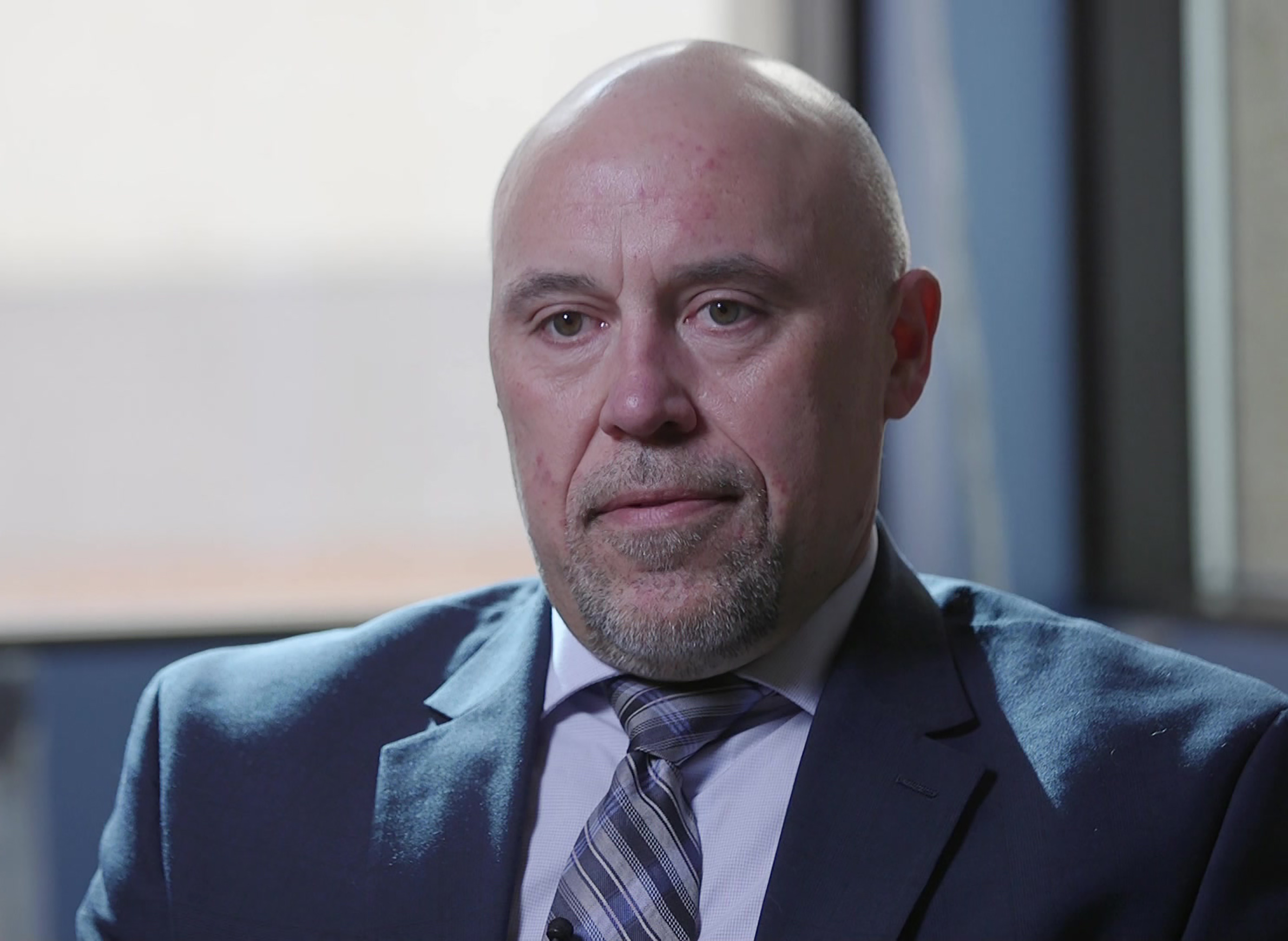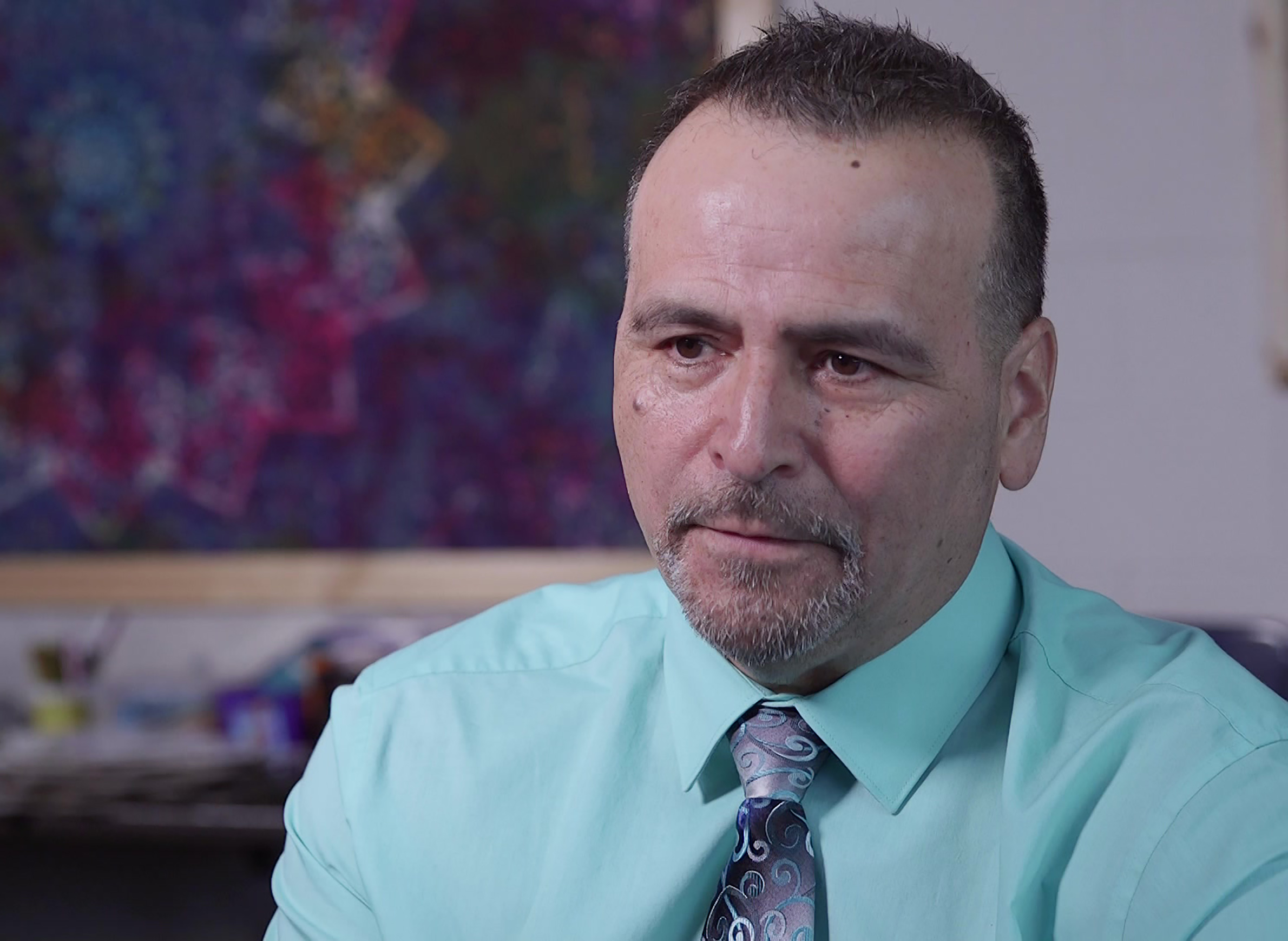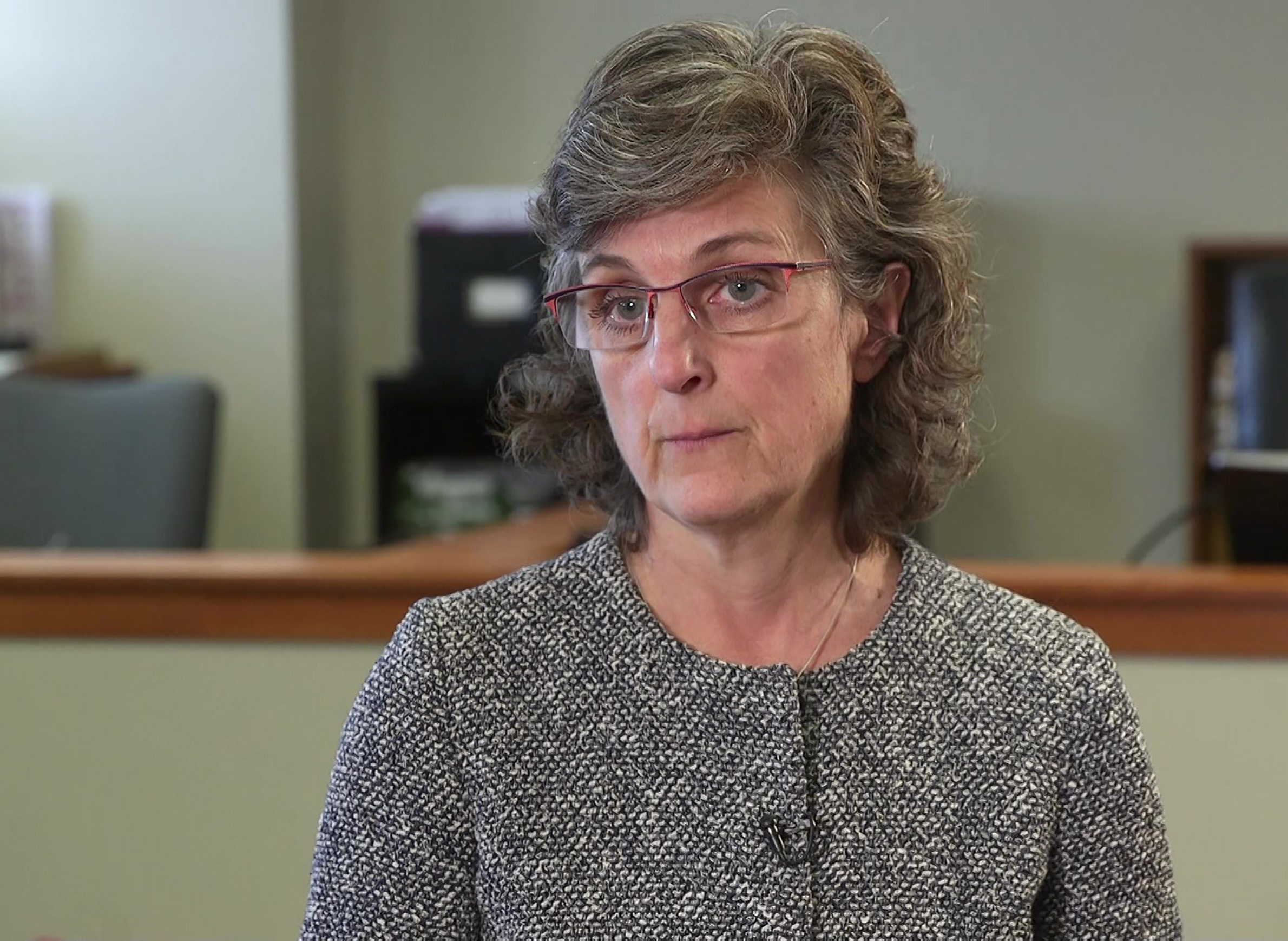
Why Trauma-Informed Care Is Creating Hope For Kids In Wisconsin

In 2012, Waupaca County's health and human services department was hemorrhaging employees, particularly within its child protection and juvenile justice programs.
"There was just a lot of turnover," said Chuck Price, who took over as director of the department around that time. "We needed a culture of change."
Price and his colleague, deputy director Shannon Kelly, recalled a culture that seemed to place a higher value on bureaucratic outcomes than on fostering positive human connections. Such a mindset was not unique to Waupaca County, they added. Rather, it reflected a distinctly harsh form of human services that, in their view, had been baked into public agencies nationwide over decades.
"Human services [and] child welfare were initially set up to sustain the system," Kelly said, referring to the laws and regulations on which these services are built. "[They] were not necessarily built to support people."
That reality was starkly evident to Price, who watched as stressed and burned out employees called it quits with disturbing regularity, while the county residents they served continued to require high levels of care.
"I knew we were going to have to make some changes in Waupaca County," he said. "We needed to bring the 'human' back to human services."
This desire fit into a sweeping shift over the past few decades in the practice of behavioral health that has come to be known as trauma-informed care.
Put simply, trauma-informed care is a concept and practice used in professions ranging from child welfare to criminal justice that is grounded in behavioral science and recognizes that traumatic experiences can powerfully shape an individual's behavior for years or even decades.
Price summed up the concept in an oft-used mantra of trauma-informed care practitioners.
Trauma-informed care "changes the question [we ask] from 'What's wrong with you?' to 'What's happened to you?'" he said.
A new approach to human services takes hold
Health and psychological researchers have investigated the lasting physiological effects of trauma since the Vietnam War, when a flood of soldiers returned to the United States with complex mental health symptoms, many of which were eventually diagnosed as part of post-traumatic stress disorder.
In the ensuing decades, researchers and practitioners found that symptoms of trauma were common in the civilian population as well. In the 1990s, a study of 17,000 people linked adverse childhood experiences, which can often be traumatizing, with health risks in adulthood. This research, commonly known as the ACE study, was a watershed moment in the public understanding of adversity and trauma and their effect on public health.
Meanwhile, advances in neuroscience showed that children who have suffered severe neglect or abuse during critical stages of brain development — essentially any point during childhood — often have differently-structured brains than their peers. These brain changes are linked to a range of behavioral challenges, including aggressive outbursts, dissociation, depression and anxiety, though there is no uniform response to trauma.
Armed with the scientific evidence that trauma is common, that it affects people in many different ways and to varying degrees, and that it can lead to behavioral challenges common in child welfare and criminal justice settings, advocates of trauma-informed care have called for expanding its use, including in Wisconsin.
Wisconsin Public Television's May 2019 documentary Not Enough Apologies delves into the effect of trauma on Wisconsinites and the caregivers who serve them. A segment from the documentary discusses how the ideas behind trauma-informed care required a shift of perspective among the professionals who serve traumatized individuals.
Under the administration of former governor Scott Walker, the Wisconsin Department of Health Services has devoted considerable resources to promoting trauma-informed care. Since 2012, these efforts have included a public campaign called Fostering Futures, as well as funding for a statewide coordinator devoted to disseminating trauma-informed principles among state and county agencies.
Tonette Walker, then the First Lady of Wisconsin, conducted listening sessions around the state in 2014 that centered on a different approach to providing human services. She asked Price to hold one such session in Waupaca County.
Improving school outcomes by confronting personal and historical trauma
Another Wisconsin community that has embraced trauma-informed care principles is the Menominee Indian Tribe of Wisconsin.
Wendell Waukau, superintendent of the Menominee Indian School District, said that in 2011 the district took a close look at data regarding suspensions and expulsions. These figures showed that the district was suspending and expelling students at rates above the state average, and that prompted the district to investigate the root causes of the behaviors leading to discipline.
"I started to learn about the pain and suffering that was behind these behaviors," Waukau said. "It put me on a quest for knowledge about a different type of system to meet our kids' needs."
Around the same time, the Menominee tribe became a pilot community for the Fostering Futures initiative and received a grant from the federal Substance Abuse and Mental Health Services Administration, to promote safe schools and healthy students. It marked the opening of a multi-year effort to engage the local community in conversation and action surrounding mental health and trauma.
"We took that money and didn't do simply school reform," Waukau said. "We did comprehensive school and community reform."
Through community dialogues, Waukau said it became clear to district officials that many students were feeling the effects of personal pain and longstanding community-wide traumas.
"What helped me was understanding that these traumas happened over time and were passed on from generation to generation," Waukau said. "In our tribal community, our wounds that need healing go back far."
Among the historical traumas Waukau cited were the American Indian boarding schools of the 19th century and the U.S. government's Indian termination policy of the mid-20th century.
"A lot of our challenges in schools and health issues stem from those traumas," Waukau said. "Trauma-informed care gave us the understanding that this trauma was passed on, and it also gave us hope to heal."
The reforms implemented by the school district include a new student health center affiliated with the tribal clinic. The Menominee Indian School District is also working with tribal social services and the county to bring in a rotation of therapists for on-site mental health services. Waukau said more than 270 students now receive school-based mental health care.
Additionally, elementary students begin their days with 15 minutes of mindfulness exercises, which Waukau said helps prepare them for the day's lessons. Teachers across the district are also checking in with their students daily to assess their emotional readiness to learn, and newly created "wraparound" services provide after-school activities and supplemental nutrition
"In order for kids to do well in school, we have to make sure their social and emotional needs are met," Waukau said. "If we build the right conditions, then we build hope for kids."
A trauma-informed judicial system
Judge Mary Triggiano is no stranger to trauma. Presiding over cases in Milwaukee County Family Court over many years, she has witnessed countless times the lasting behavioral effects that trauma imparts on children.
Triggiano's interest in the effects of trauma took root in the late 2000s, as she attempted to make sense of the wrenching cases before her.
"I was at children's court handling very, very difficult cases," Triggiano said. "Cases that involved child abuse and neglect, kids committing crimes, and I was just trying to understand what was going on and asking myself 'Why do we have this type of behavior? If we could understand this better, we might have better solutions.'"
At the time, Triggiano said she was vaguely aware of research connecting trauma in children to the types of behavior she was seeing. That hazy awareness crystallized in 2009 when Triggiano was asked to take part in a panel discussion that included one of the lead authors of the ACE study. She looked up the research and read about the potential power of adverse childhood experiences to alter behavior.
Triggiano then applied the ACE study's findings to four of her cases and realized that the people involved in each — all at different stages of life and dealing with different behavioral problems — had faced adversity of the type that can alter brain structure and affect behavior. This revelation spurred her to delve into the subject matter more closely, and she began talking to her colleagues about how the local courts could apply trauma-informed practices in the pursuit of better outcomes.
"It was sort of new in the community, so we started having more conversations about the impact of adversity and toxic stress on adults and kids in the justice system," Triggiano said. Research into the effect of toxic stress on infant brains was of particular interest to her.
Triggiano's been spreading the word within the justice system ever since. She said all parts of this system — law enforcement officers, judges, prosecutors, defenders and correctional staff — can improve criminal justice outcomes by heeding lessons at the core of trauma-informed care, in particular creating conditions that minimize re-traumatization.
"The environment we create in our courts and systems is really important for reducing recidivism and holding people accountable,' Triggiano said. "We started to do more training including for parents in court because we realized if we were trauma-informed, we'd have better outcomes."
Perhaps the most prominent result of this trauma-informed approach is Milwaukee's Healthy Infant Court, which was created to help make sure that infants with caretakers in the criminal justice system have a better chance at healthy brain development.
"We did a pilot with a woman from the family drug treatment court who was struggling interacting with her baby," Triggiano said. "And we had some really tremendous results and were invigorated by that and launched the court."
Triggiano no longer presides over the Healthy Infant Court, but she is continuing to advocate for the trauma-informed practices together with many colleagues, and has trained over 500 people in the criminal justice system on how to apply these approaches to their work.
Reducing burnout and improving human services
Chuck Price and Shannon Kelly said trauma-informed care has been a game-changer in their department in Waupaca County, providing benefits to patients, providers and the entire human services system.
In 2019, Waupaca is one of 58 counties and half a dozen tribes that have formally taken part in some part of the state's trauma-informed care training, called the Wisconsin Trauma Project. Seven state agencies, including the state justice and corrections systems, have also embraced the approach, as have many school districts, nonprofits and hospitals.
Shannon Kelly said trauma-informed care benefits not only the victims of trauma by better treating their symptoms, but can ease the emotional and mental toll on caregivers and support a stronger social fabric.
"We've had a decrease in job turnover, increase in job satisfaction and decrease in burnout and secondary traumatic stress among our employees, and a lot of that is because we're able to do the work in a more human way," she explained. "When you flip the lens in human services to be trauma-informed, a level of heavy-handedness goes away because you're trying to be a partner to your clients."
As an example, Kelly compared a commonly used punitive system in the mental health arena, whereby a patient would be cut off from services after a certain number of missed appointments, with a trauma-informed system.
"Instead of 'three strikes, your out,' trauma-informed care means understanding there's something going on that's hindering someone from showing up," Kelly said. "Instead of becoming frustrated and taking it personally, you shift your thinking to 'this person is clearly not in a good spot, so how can I support them?'"
Another segment from Not Enough Apologies further explores the ideas Kelly described.
This less adversarial approach has not been free of controversy in some arenas where trauma-informed care has taken hold. For instance, in 2016 some staff blamed newly instated trauma-informed care principles for contributing to problems, including allegations of abuse, at the Lincoln Hills and Copper Lake juvenile prisons, though others said the principles were not properly followed.
In Kelly and Price's view, trauma-informed care has led to only positive change in Waupaca County. In addition to increased job satisfaction among their employees, Price said the county has seen a marked reduction in costly mental health hospitalizations since adopting trauma-informed care approaches. He said in 2017 alone the county was able to reallocate $250,000 to prevention and intervention services that had originally been allocated for hospitalizations.
It's in these prevention and intervention services that Price and Kelly believe their work can be most effective.
Price acknowledged that trauma-informed care cannot keep every child out of the system, but he contended that it can keep many out, and that a local government agency grounded in its principles can reduce harm by providing a more thoughtful touch.
"The current child welfare system is traumatizing in itself," said Kelly. "It's designed to separate children from their connections. We know that one night away from your family can cause lifelong traumatic responses for our children. That's what the system was designed to do, and it traumatizes children over and over again."





